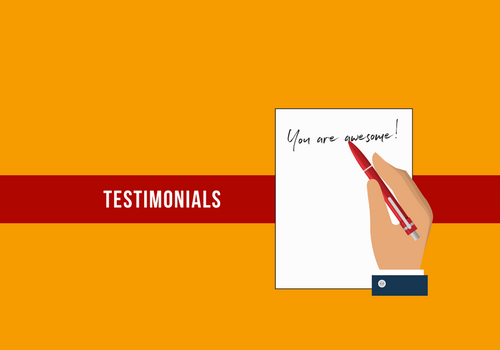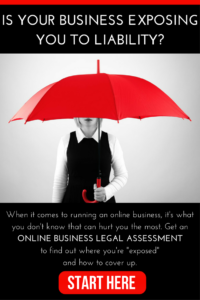We all know how powerful a testimonial can be. If done right, it can make people want to instantly sign up for your products and services.
 There’s nothing like “social proof” to improve your “Know-Like-Trust” factor. The higher your KLT, the more successful you’ll likely be.
There’s nothing like “social proof” to improve your “Know-Like-Trust” factor. The higher your KLT, the more successful you’ll likely be.
So… what is it, exactly, that makes a testimonial powerful?
The answer is quite simple, actually.
The Truth.
That’s it.
If it’s The Truth then it will naturally be a powerful testament to what you can do for your clients and customers.
A powerful (truth-full) testimonial overcomes skepticism and makes it easy, even for diehard skeptics, to push the “Buy Now” button.
Here are the elements of a powerful testimonial:
- It’s not flowery or gushy, a.k.a. fake;

- It’s written the way people talk;
- It provides answers to the objections people are quietly thinking to themselves, “What makes her different from any other lawyer out there?” “Why should I pay that much for something like this?” “What if it doesn’t work?”
- It paints a clear “before and after” picture in the mind of the reader of how the writer was transformed by using your product or service;
- It’s a real person with a first AND last name (at least) and maybe their website URL or where they’re from.
Testimonials don’t have to necessarily be written word. They can be also be videotaped or voice recorded. Just make sure you have permission to use them (see below).
Finally… keep it legal.
Be absolutely certain you have permission to use the testimonial as well as the person’s personally identifiable information, including (especially) their photo. Don’t open yourself up to a lawsuit for a breach of their right to privacy. It can be as simple as keeping the email in which they consented as proof.
If someone says no to allowing their name to be published, find someone else. First-name only testimonials always look suspect, even if they’re real.
The Federal Trade Commission (FTC) regulates advertising in the US and I swear it can smell a rat false advertising a mile away.
The FTC has made it illegal to issue false claims.
That means it’s illegal to use testimonials that can’t be backed up with clear proof. In the case of the weight loss industry, for example, the law is pretty clear: you’d better have scientific evidence to back claims that are not typical of what “the average person” would experience or make a clear statement that results are not typical.
AND GET THIS:
The FTC can hold both you AND the person who wrote the testimonial responsible for deceptive marketing practices.
Deceptive practices are a big no-no. As in, ugly-one-piece-orange-jumpsuit kind of no-no.
Legally yours,
Lin E

